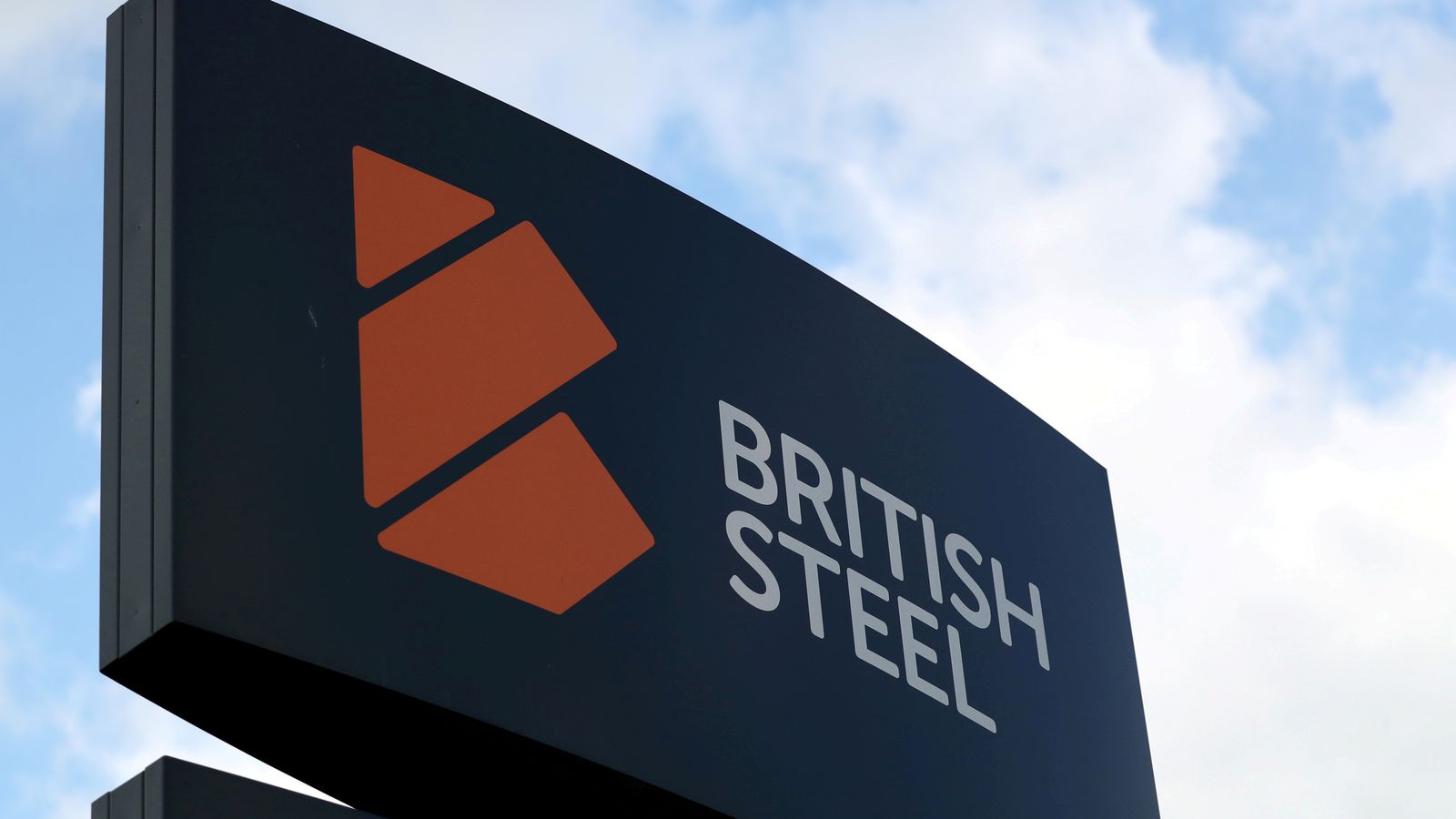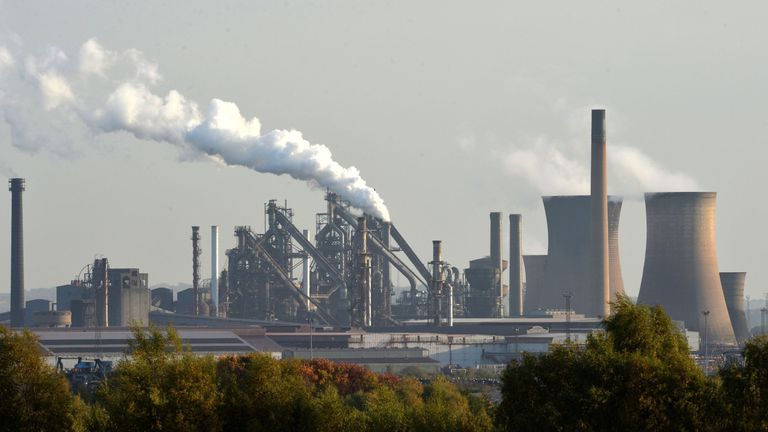British Steel has revealed it is to cut 260 jobs, almost 7% of its workforce, despite continuing government funding talks with its Chinese owners.
It was announced that the losses would be felt at its Scunthorpe plant through the closure of its coking ovens – used to turn coal into the high-temperature product needed to service its blast furnaces.
The Unite union responded by saying it would look to defend every job and did not rule out the prospect of industrial action.
The move was revealed after Sky News reported that officials from the Department for Business and Trade were due in China to meet executives from Jingye Group amid protracted talks about a £300m grant.
Sources said the talks were expected to focus on the value of an energy subsidy package, which could take the overall value of government support for British Steel to approximately £1bn.
The prospect of additional taxpayers’ cash had been dependent on job guarantees.
Sky’s City editor Mark Kleinman reported last month that Jingye was drawing up plans to cut around 800 jobs at British Steel.
The company placed no timeframe on its proposals but said it had entered talks with unions.
It placed an emphasis on cutting its environmental impact and energy bills.
The company said its costs, on both fronts, rose by a combined £190m last year.
It declared in a statement that “decisive action is required because of the unprecedented rise in operating costs, surging inflation and the need to improve environmental performance.”
British Steel chief executive Xifeng Han said: “Steel is vital to modern economies and with demand expected to grow over the coming decades, British Steel has a crucial role to play in ensuring the UK has its own supply of high-quality steel.
“To make sure we can deliver the steel Britain requires, we’re undergoing the biggest transformation in our 130-year history.”
He added: “We have taken action to reduce costs within our control; however, steelmaking in the UK remains uncompetitive when compared to other international steelmakers.
“Our energy costs, carbon costs and labour costs are some of the highest across the world, which are factors that we cannot influence directly.
“For the reasons outlined, we entered into talks with the UK government in summer 2022 and are extremely grateful for its support.
“It’s important we have the correct policies and frameworks in place to back our drive to become a clean, green and successful company and we’re continuing to discuss this with the government.”
Click to subscribe to The Ian King Business Podcast wherever you get your podcasts
Unite general secretary Sharon Graham responded: “British Steel workers are faced with the toxic combination of a greedy employer that is reneging on investment promises and a shambolic UK government that has no serious plan for the industry.
“Unite’s members in British Steel are clear that they will fight this and they will have the full support of their union.
Unite national officer Linda McCulloch said: “This union has not yet seen any financial justification for the closure of the coking ovens. British Steel needs to come clean and open its book in order to try to justify its decisions.
“Unite will pursue every avenue, including industrial action, to defend members’ jobs at British Steel.”

